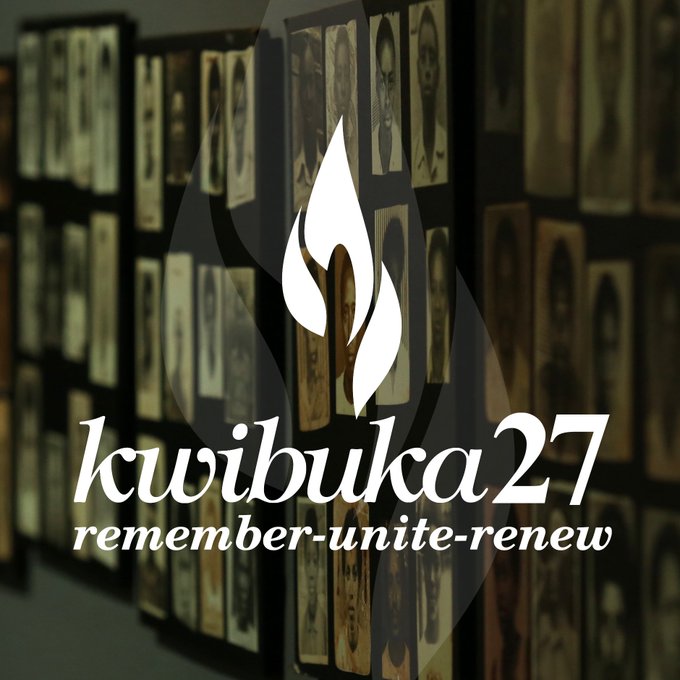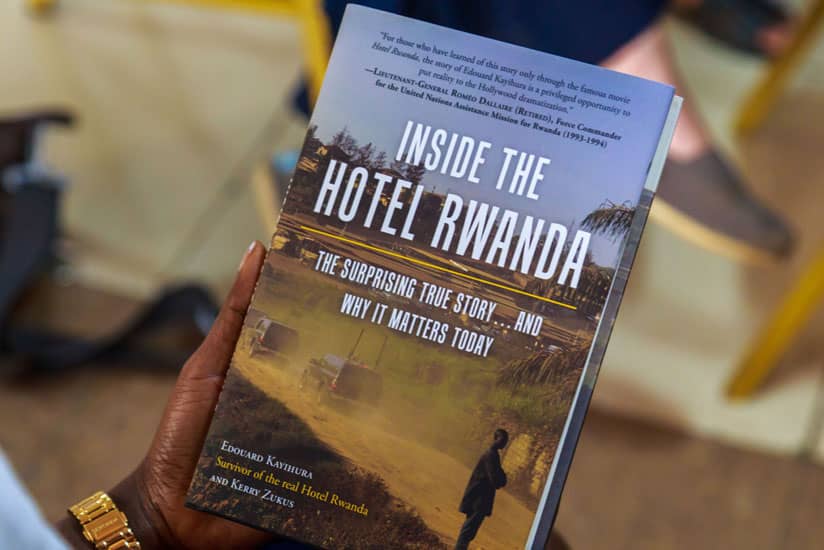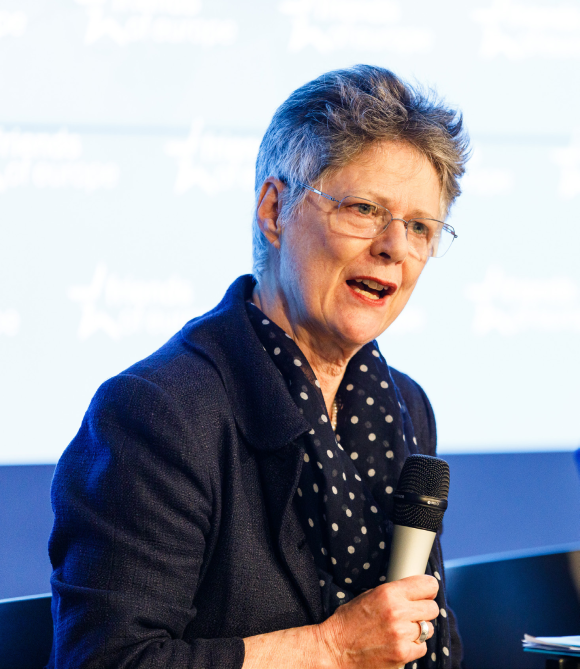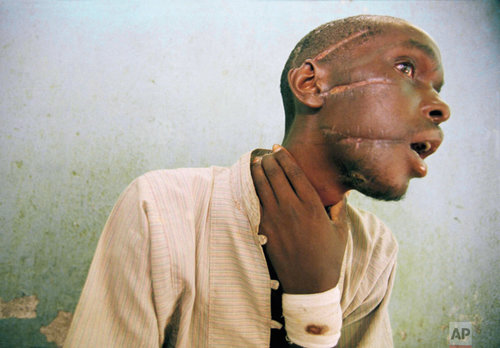Regional
President of UN Tribunal: Denial of Genocide against Tutsi a danger to peace, security
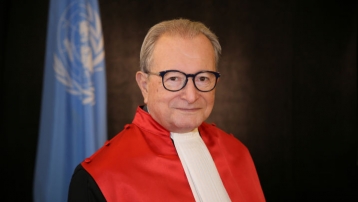
Judge Carmel Agius, President of the International Residual Mechanism for Criminal Tribunals (IRMCT), or the Mechanism
Judge Carmel Agius, President of the International Residual Mechanism for Criminal Tribunals (IRMCT), or the Mechanism, on April 7, bashed deniers of the 1994 Genocide against the Tutsi, saying they will stop at nothing in attempts to erase or revise the past.
Agius, 75, who was speaking
live from his home in The Hague, Netherlands, during a ceremony to commemorate
the International Day of Reflection on the 1994 Genocide against the Tutsi
noted that denialism does not only
inflict additional pain and suffering
on the victims of the genocide.
"It delays
reconciliation and is an
overall danger to peace and security," the Maltese judge who was
last year appointed to a second term of office as President of the Mechanism,
from July 1, 2020 to June 30, 2022, added.
At the onset of his
statement, Agius noted that as Rwandans and their friends come together to
reflect on one of the most gruesome atrocities committed in modern history, it
is difficult for the human brain to fathom the volume and scale of Rwanda’s
loss whereby every single man, woman, and child who fell at the hands of
génocidaires represented an entire world.
In just 100 days, from April
7 to July 18, 1994, more than one million innocent civilians were slaughtered
by Interahamwe militia supported by the then government.
All the atrocities happened
as the International Community watched but failed to prevent and stop the
genocide despite its prediction by numerous international human rights
defenders and media. It was the Rwandan Patriotic Army that stopped genocide
and liberated the country from the genocidal forces in July 1994.
The Genocide was the
culmination of years of exclusion and denial of human rights that paved way to
the attempt to completely eliminate the Tutsi 27 years ago.
Since Rwanda’s independence
in 1962, successive regimes maintained a policy targeting the Tutsi - massacres
of 1962, 63, 64, 67, 73, 90, 91, and 1992 - as a group to be exterminated.
Noting that people all over
the world are commemorating with Rwanda, Agius assured participants at the
virtual event that the Rwandan people are ever more present "in my heart
and in my mind."
While this remembrance plays
an essential role in ensuring that momentum is not lost in bringing to account
the remaining perpetrators of the genocide against the Tutsi in Rwanda, he
said, it also aids in countering those who add insult to injury, who commit an additional
heinous crime against the victims of these atrocities – those
engaged in genocide denial.
"Genocide denialism is
not a new phenomenon. Sadly, history has taught us that as surely as night
follows day, denialism follows the depraved act of genocide," he said.
They will stop at nothing
Agius' comments come at a time when genocide deniers and their supporters have upped tempo, with the likes of Canadian journalist Judi Rever, British journalist Michella Wrong and many others in foreign capitals peddling genocide denial and revisionism.
Big Western media houses
including the BBC, The Guardian, and Washington Post, also continue to ignore
the fact that the true account of the Genocide was not invented but is based on
an easily accesible mass of documents and testimonies.
These publications have been
turned into mouth pieces for genocide suspects, deniers, revisionists and
Rwandan terror suspects. Agius said genocide denial
manifests itself in a number of different ways, the twisting of reality, the
glorification of convicted criminals, the justification of the unjustifiable,
and revisionism. It is also not simply the
denial of facts, but a distortion of the truth, he said.
In the digital society we
live in, with access to countless unverifiable sources of information, he
warned, the concept of “alternative facts” has become all too pervasive, and
denialism thrives.
"Although the world’s
interconnectivity via social media brings us closer together, it also serves as
a platform to enable this despicable practice. Through social media, génocidaires
and their supporters have access to an unlimited audience to promote their
outrageous narrative," Agius said. Genocide deniers, he added,
will stop at nothing in their attempts to erase or revise the past.
"If we are not
vigilant, the tiniest of untruths that is allowed to go unchallenged will
multiply and spread, and become even more difficult to rectify in the future.
Therefore, all right-thinking people must counter the misguided arguments of
the genocide deniers
with equal, if not
greater
intensity to ensure
that the truth prevails and
lessons are learned."
"Only facts
can fight lies,
and we must
stand united to
ensure that the facts are being
heard."
When it comes to
genocide denial, therefore, Agius observed,
the inaction of the international community, but also of every individual,
when confronted with such denial would be tantamount to complicity in creating an alternate
reality. It would further abet the dehumanisation of the survivors and strip
them of both recognition and justice, he said.
Direct threat to international justice, rule of law
Agius said that denialism does not only inflict additional pain and suffering on the victims of the genocide. It also "delays reconciliation and is an overall danger to peace and security," he said.
"Moreover, genocide
denial is a
direct threat to
international justice and
the rule of
law. The ICTR (International
Criminal Tribunal for Rwanda) was
established not only
to bring justice
to the victims,
but also to
contribute to the
process of national reconciliation and
to the restoration
and maintenance of
peace."
Historians may
deliberate over the
inaction of the
international community during Rwanda’s dark days, he said, and scholars may also engage in extended discourse on the time it takes
for international criminal justice to be
administered.
But, Agius said, thanks to
the compelling evidence provided by
witnesses to the ICTR and the clear judgements that resulted from their
testimony, what will never be
up for debate is the fact
that genocide, crimes against
humanity, and war crimes were
perpetrated in Rwanda in 1994.
"Lies written
in ink or on
social media will not
erase facts written
in blood. Indeed, the ICTR
judgements are filled with facts written in blood."
Agius concluded by
reiterating that having established this
as an objective fact, it is important to
confront the denialists and call evil by
its name.
"We must do this, not
simply to set the record straight and to
deliver justice to the victims, but
because it is the right thing to do.
Because it is the least we can do to ensure that the uncountable souls who
perished did not die in vain. Of this there can be no denial."
Agius has served as
Mechanism President since January 2019, having been a Judge of the Mechanism
since it commenced operating in 2012.
He was also a Judge of the
International Criminal Tribunal for the former Yugoslavia (ICTY) for 16 years
from 2001, serving as its Vice-President from November 2011 to November 2015,
as well as its final President from November 2015 until December 2017.
In addition, he served as a
Judge of the ICTR from 2009 until its closure in 2015.
The Mechanism was
established by UN Security Council Resolution 1966 (2010) to complete the
remaining work of the International Criminal Tribunal for Rwanda and the
International Criminal Tribunal for the former Yugoslavia after the completion
of their respective mandates.


